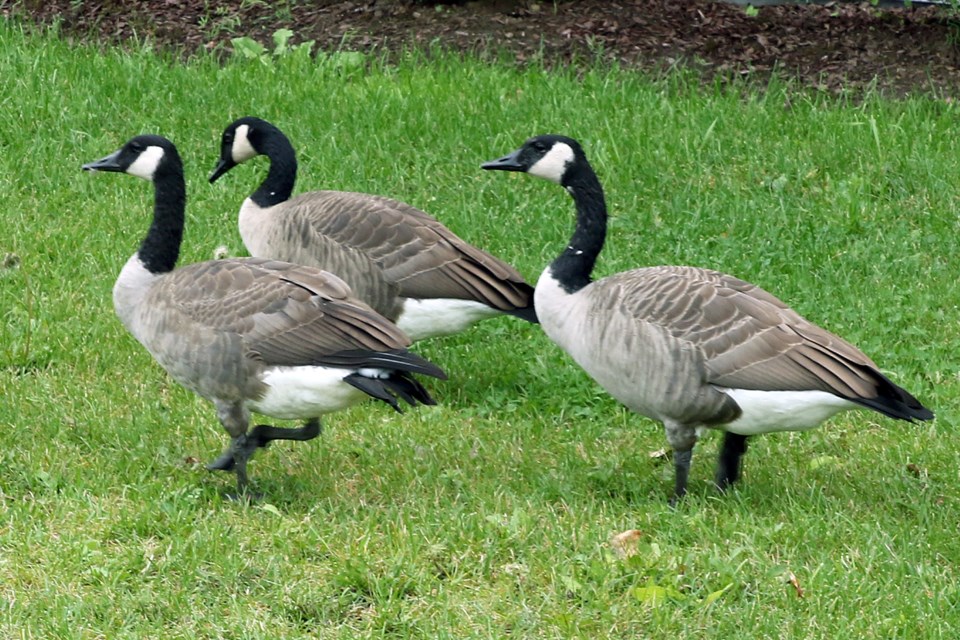I was wandering around my garden recently, awaiting the next flock of migrant geese to fly over, and listening for any bird vocalizations I might hear. As my list of “heard” birds gradually grew, I found a common theme among nearly all of the species – the colour red. In the space of a few minutes, I heard rufous-sided towhee, red-breasted nuthatch, ruby-crowned kinglet, red-breasted sapsucker, red-shafted flicker, house finch, American robin and Anna’s hummingbird. Other regular species with some red feathers include the other three local woodpecker species: hairy, downy and pileated. I can attach no ecological significance to this prevalence of the colour red in our local wintering birds.
Continuing with this theme, yellow is definitely the colour of summer and is largely absent during the winter. Exceptions to the rule are varied thrush (orange-coloured), evening grosbeak, golden-crowned kinglet, and pine siskins also have a flash of yellow in the wing. During the summer, many of our visiting birds have yellow in their plumage including seven species of warblers, plus goldfinch, western tanager, black-headed grosbeak, cedar waxwing and Bullock’s oriole. Obviously, there are evolutionary imperatives at work here, as bright colours that may not attract the attention of predators in a colourful tropical environment would certainly be counter-productive in a dingy, wintertime temperate rainforest.
October and April are the months when tens of thousands of geese migrate over the Sunshine Coast. During the week of Oct. 4 to 11, there was a constant passage of flocks overhead. There appeared to be a lull for a few days from the 12th to the 16th, then on the 17th flocks were constant all day long. Five species of geese are involved: Canada, cackling, white-fronted, snow and brant. The birds originate from a vast area of Siberia, Alaska, Yukon and the Canadian Arctic, and they are destined for wintering locations from as near as the Fraser Delta, to as far as Mexico. Despite the variety of their flight origins, they are all converging on the Fraser Delta, one of the richest and most critically important bird habitats on the Pacific coast. Some of the birds will stay for the winter, but others will only stage there before continuing southward.
A very few birds from the overhead flocks have put down on the Sunshine Coast and tiny numbers (single digits) have been noted at various locations around the area. Usually a few of these geese linger with us through the winter, often associating with the resident flocks of Canada geese.
To report a sighting or ask a question contact [email protected] or 604-885-5539. Good Birding.



